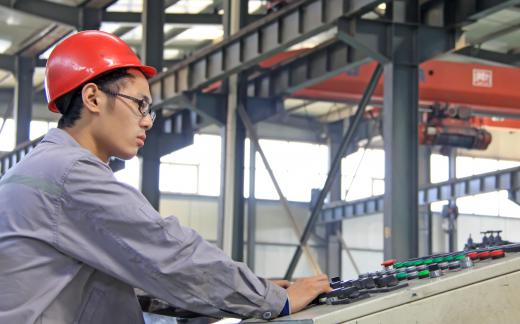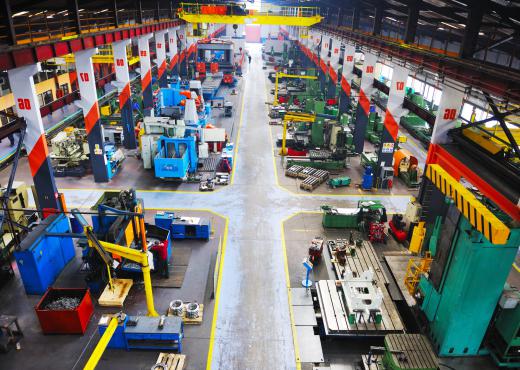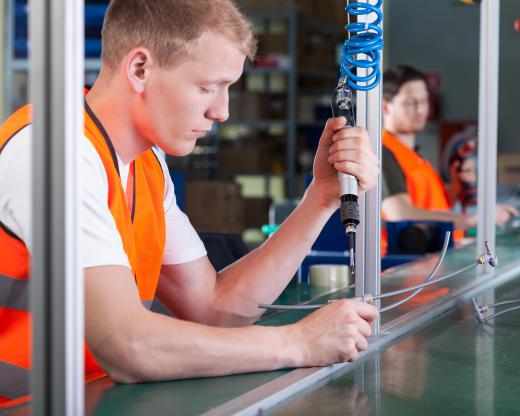A production supervisor normally fills a role immediately between workers and management, and therefore has to focus on satisfying the needs of both groups. Also known as a manufacturing supervisor or shift supervisor, a production supervisor most strongly identifies with the workforce, and serves its immediate needs as well as acting as a type of advocate for production issues that need to be brought to management. Attention is focused on the general operations of a facility, safety and efficiency, and the scheduling of tasks to labor.
A key role of a production supervisor is making sure that a facility runs smoothly by allocating labor resources to take care of short-term objectives. This is frequently referred to as time management and involves scheduling of full-time and part-time employees. Since employees have personal goals as to their own work schedules and outside conflicts, the production supervisor must balance these interests with the needs of the company so that workers are retained and motivated to do their best on the job. This can involve juggling schedules and shifts from one employee to another on short notice to ensure that operations continue efficiently.

Of equal importance is the role that a production supervisor plays in overseeing the manufacturing process in general. He or she must be focused on the entire process, as well as being aware of bottlenecks due to faulty or inadequate machinery, of employees who require additional training, and of safety and health hazards that could put a stop to production. In this sense, a production supervisor may need to rely on the expertise of technical staff in various other departments who contribute to production, such as maintenance, security, and computer technical support. Where processes could be improved upon, reporting these issues to other related staff such as a manufacturing supervisor or production manager with more authority is involved.

The job of a floor supervisor is usually fast paced with many competing demands that must be satisfied and little time for reflection on decisions that must be made. Organizational skills are key to being able to meet the needs of such a fast-paced environment. Where the role is one of an industrial supervisor, it is also beneficial if the production supervisor has prior experience on the machinery and work stations of which they are in charge so that he or she can make quick, informed decisions moment by moment.

The overall goal of a production supervisor is one of reducing costs through the lowering of waste and overtime work, while increasing quality and output. This is done by making sure that the workforce is properly suited to the tasks that it is given and that flaws in the production process in general are quickly identified and corrected. Some of the scheduling work involved in the production process may be done by a production coordinator or other management, but supervision of work flow still remains the responsibility of the production supervisor.
This job title necessitates a hybrid of skills in human resource management, efficiency expertise, and quality improvement and control. Interaction with workers is best managed by having a good understanding of what their jobs are truly like and where they could be improved upon, which often comes from firsthand experience and prior supervisory roles. Efficiency and quality improvements are aided by knowledge of research in lean manufacturing, Six Sigma optimization, and Total Quality Management (TQA) that applies to the particular industry being worked in and related industries.
The US Occupational Outlook Handbook (OOH) for 2011 states that a third of all employees in these positions as of 2008 were regularly working more than 50 hours a week. This often involved late and after-hours shifts and duties to deal with production emergencies. The job is seen as relatively stressful as well, since a production supervisor must satisfy the needs of workers and superiors under tight deadlines. The trend in industry to eliminate middle management has also put increasing responsibility on such roles at the production level.
